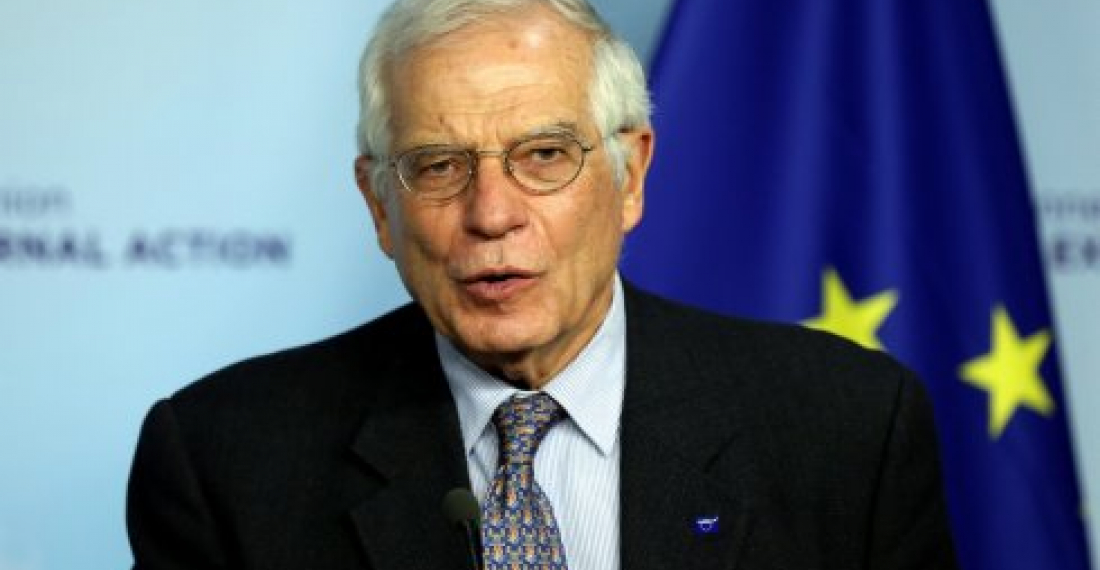The EU High Representative for Foreign and Security Policy, Josep Borrell, in a statement on Wednesday (22 December), said Russia's actions in Eastern Europe and the Caucasus have created new threats and fears of invasion, and that Europe was today under threat. Borrell's statement was in response to Russia's recent attempts to re-define Europe's security architecture. On Wednesday, Borrell also discussed the situation with US Secretary of State, Antony Blinken.
The full statement of High Representative Borrell, published on the EEAS website, said:
Russia has made public two draft treaties affecting the European security architecture. They are addressed to the United States and to the members of the Atlantic Alliance respectively.
The European Union is fully committed to security in Europe based on the key principles of non-aggression and respect for national sovereignty and for territorial integrity. Today, Europe’s security is under threat.
Russia’s actions, in particular the illegal annexation of Crimea, its role in fuelling the conflict in eastern Ukraine as well as its actions in the Georgian break-away regions of South Ossetia and Abkhazia, in the Transnistrian region and in its support to the Lukashenko regime, have led to a severe deterioration of the security situation in Europe. Most recently, the military build-up of Russia at its borders with Ukraine and in the illegally annexed Crimea have created new threats and fears of invasion.
Together with partners and allies, the EU has clearly indicated that it will respond resolutely to any further violations of Ukraine’s sovereignty. At the same time, the EU believes that dialogue, negotiation and cooperation are the only means to overcome disputes and bring peace. Any real discussion on security in Europe must build on and strengthen OSCE and UN commitments and obligations - true pillars of the European security architecture - and not lead to their erosion. Such a discussion must be inclusive and must take into account the concerns and interests of all stakeholders. The EU will engage with both the US and NATO to ensure its interests are represented in any possible discussion with Russia on European security.
NATO’s offer to hold a NATO-Russia Council in response to the draft treaties on European security that Russia rendered public last week is an important step. NATO has a key role in guaranteeing peace in Europe. The EU is keen to work together with allies as well as with its partners in addressing today’s security situation in our continent.
On Friday (17 December), the Kremlin published two draft agreements on guarantees of security which it submitted to NATO and the United States. In them Russia says that NATO must suspend all military activities in Eastern Europe and Ukraine, which is an essential condition for a detente in the ties between the United States and its European allies on the one side and Russia on the other.
The documents are drafts of two treaties: one addressed to the US; and the other intended for signature by NATO. In addition to the Russian veto on Ukrainian accession and further expansion of NATO, the Kremlin also wants activity in the Baltic and Black Sea to decline. Placing missile systems in places where the territory of the other can be hit is also envisaged to be banned.
According to the Russian agreements, NATO troops must be withdrawn from countries where they were not present in 1997, before NATO's eastward expansion began. This means that NATO troops should no longer be present in Poland, Hungary, the Czech Republic, Bulgaria, Romania, Slovakia, Slovenia, Estonia, Latvia, Lithuania, Albania, Croatia, Montenegro and northern Macedonia. All these nations became members of NATO after 1997. In the Russian vision exceptions to this will require Russia's consent.
In addition, the Kremlin wants US and Russian battleships and warplanes banned from areas "where they can fire upon the other side". Russia also wants all US nuclear weapons stationed outside the US removed. The US must "eliminate all existing infrastructure for deployment of nuclear weapons outside their national territories", the draft treaty says.
Across Europe and North America there has been a very negative assessment of the Russian initiative, which is seen as a maximalist opening shot. This does not mean however that NATO and EU countries are not interested in engaging with Russia on the future of European security and security architecture, even if this will be have to be a long and difficult process.






